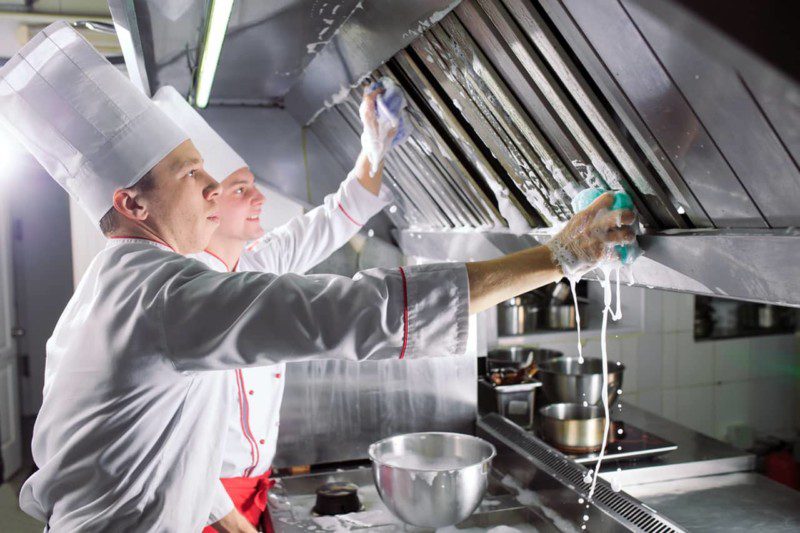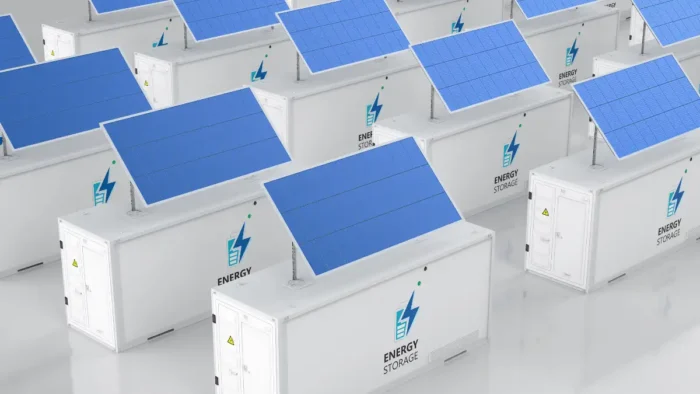As the owner of a commercial kitchen, you know that your business’ success is mainly dependent on the cleanliness of your space. And while you may have a cleaning crew that comes in every day to help you keep things spotless, it’s important to know that there are some best practices and tips for keeping your kitchen as sanitary as possible.
If you’re in charge of your kitchen’s cleaning and sanitation, here are some tips for you:
1. Have A Cleaning Checklist
Cleaning and sanitation of commercial kitchens is a serious matter. Food safety is of utmost importance to the public and the restaurant owner. Your staff must be trained in proper cleaning techniques and sanitation procedures.
To ensure proper cleaning and sanitation, you must have a checklist or list available for your employees to use while cleaning your kitchen. The following is a list of items that should be included in your cleaning checklist:
- Clean all surfaces using hot water and soap or detergent. Rinse with clean water and wipe dry with paper towels or a clean cloth.
- Clean all appliances, including refrigerators, freezers, microwaves, dishwasher for restaurants, and sinks with soapy water, and rinse thoroughly with clean water. Make sure to remove any food residue inside your appliances before washing them out.
- Wash all dishes in the machine or by hand using hot water and detergents such as dishwashing liquid. Make sure to use enough detergent for proper cleaning. Rinse off dishes before placing them in the dishwasher rack or drying rack after washing them off.
- Wipe down work surfaces using paper towels or sponges soaked in hot soapy water and then rinse thoroughly with clean water after wiping down with the soapy sponge or paper towels. You can also use disinfectant wipes in areas where germs are more likely to grow, like bathrooms or kitchen entrances.
2. Follow A Schedule
The first thing you should do when it comes to cleaning and sanitation is to follow a schedule. This means you should clean your kitchen every day, even if there are no customers in your restaurant. You can clean for at least 15 minutes each day to keep your business clean all the time.
Setting up a cleaning schedule is the best way to keep your commercial kitchen clean. Here are some things you can do:
- Clean the floors daily or at least twice daily.
- Wash walls and ceilings with hot water and detergent weekly or more often if needed.
- Empty waste bins regularly so they don’t overflow onto the floor and spread germs around the kitchen.
- Wipe down all surfaces with disinfectant at least once a day and after each use of a particular surface, such as cutting boards and sink areas.

3. Train Your Employees
Training your employees in cleaning and sanitation of commercial kitchens is vital. If you have a commercial kitchen business, you’ll need to ensure that your employees are well-trained in sanitary practices and other job-related tasks.
When training your employees, it’s important to review basic sanitary methods and procedures, such as properly using a mop, cleaning surfaces, and disposing of waste materials. Further, you may want to provide additional training in specific areas such as food preparation, cleaning equipment, or food storage.
If you run a large operation with many employees working at once, it’s often better to provide initial training and follow up with periodic refresher sessions. This way, everyone will be on the same page when it comes time to learn new responsibilities or take on new tasks within the company.
4. Use Eco-Friendly Chemicals
Eco-friendly chemicals can be used in commercial kitchens without damaging the environment. The benefits of eco-friendly cleaning chemicals include that they don’t release toxic fumes or leave harmful residue on surfaces, and being a sustainable restaurant can be a good thing. They also contain no chlorine and are biodegradable, which means they’ll not harm the environment if spilled.
Some of the most common types of eco-friendly cleaning products include:
- Cleaning products made from plant-based ingredients such as lemon juice instead of petroleum-based ones
- Natural cleaning products made from ingredients like citrus oil, vinegar, baking soda, and salt;
- Mineral spirits and turpentine that are derived from natural sources; and the like.
Final Thoughts
It’s critical to clean your commercial kitchen regularly. If you don’t, you may end up with a dirty and unsanitary kitchen that’ll put your business in danger of violating food safety laws.
But it’s not just about staying on the right side of the law. It’s important to keep your customers happy by keeping their food safe too. If they get sick from eating your food, they won’t be returning, which means losing revenue for your business.
This guide was created to help you understand how to clean your commercial kitchen safely and effectively so you can protect yourself and your customers.





